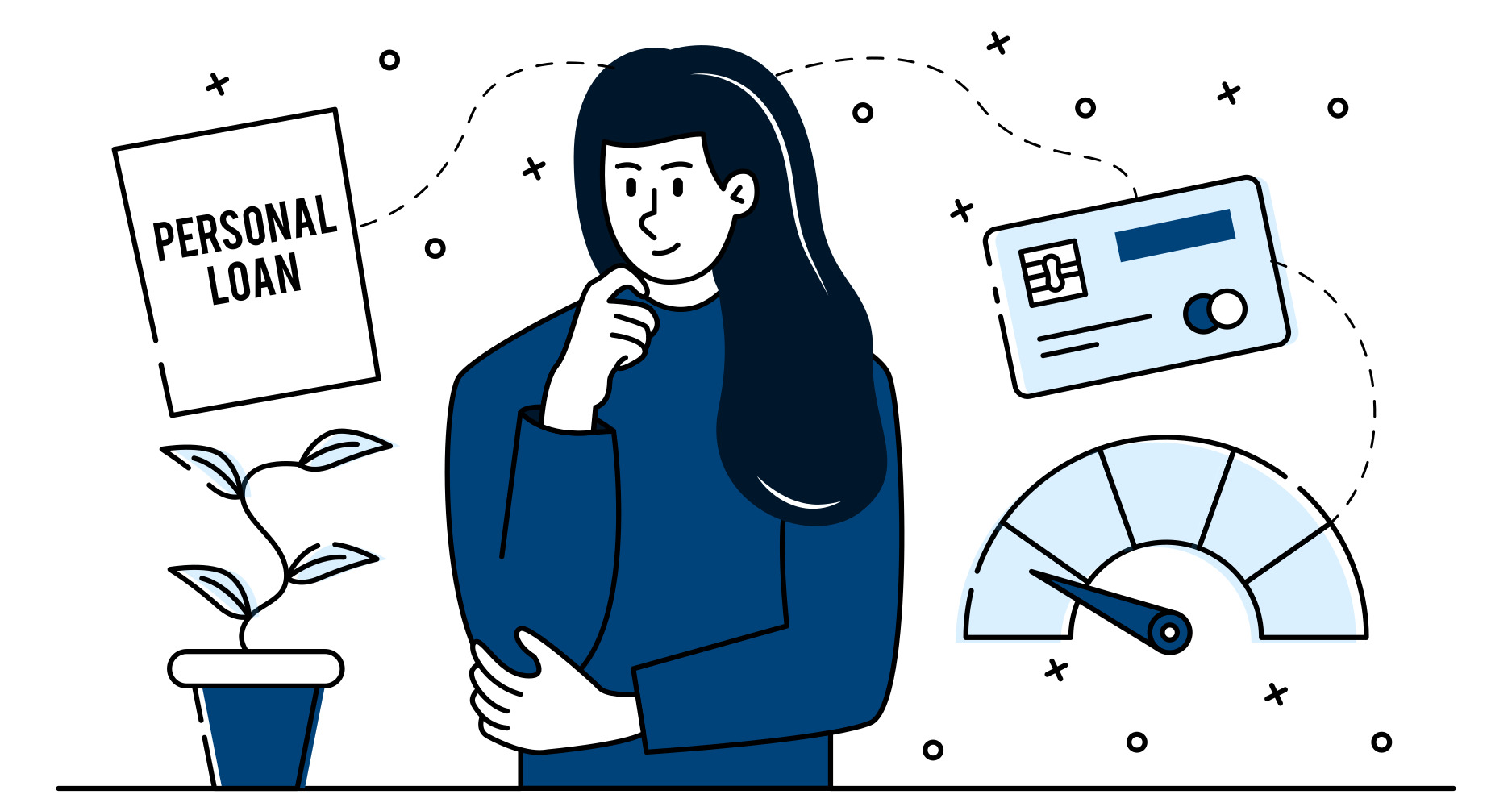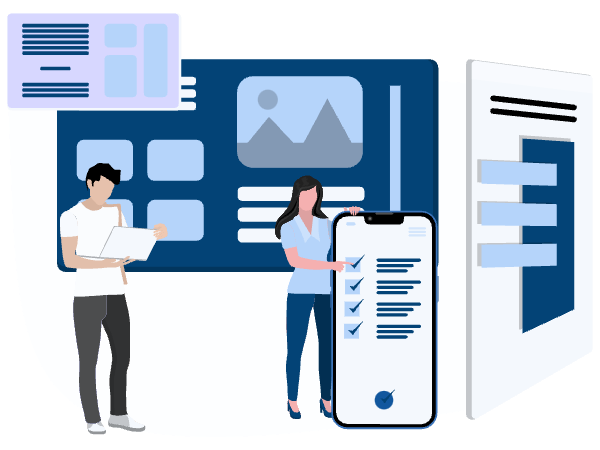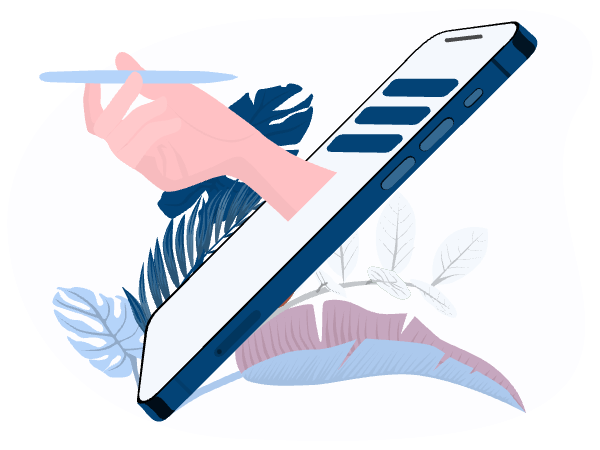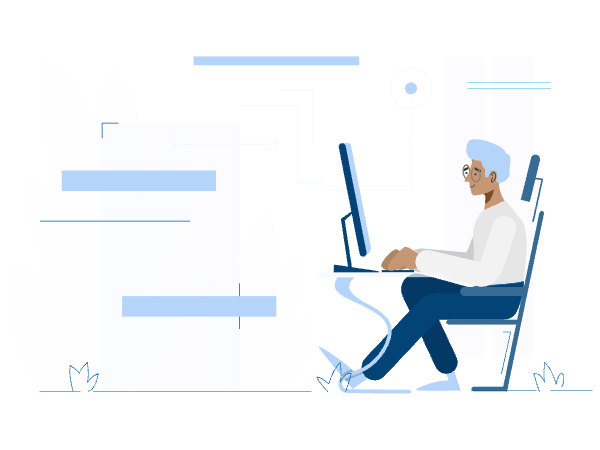Living with credit card debt can be frustrating, especially if you’re like 34% of Americans who carry three or more cards. How much should I pay for each card? Can I afford to pay off my cards in time without racking up too much additional debt? Should I focus on paying the cards with the highest amounts or largest interest rates first?
Paying off credit cards with a personal loan can help you solve all these problems. Suppose you have three or four credit cards with varying interest rates and balances. In that case, you can simplify your payments by taking out a personal loan with a lower interest rate and paying off all the remaining balances you have on your revolving accounts. That way, you’re left with paying off one loan with a lower interest rate and monthly payments.
We’ll evaluate the pros and cons of using personal loans to pay off your credit cards before going through alternative strategies if you don’t feel comfortable taking out another loan.
How much do Americans owe in credit card debt? $807 billion across 506 million card accounts. And with average interest rates sitting at around 17% – 24%, it’s a serious problem costing families thousands. If you’re struggling to manage all those credit cards, you’re not alone. So why should you even consider using a personal loan to pay off your credit cards? How does taking out more debt help you with paying them off? It’s all about finding a solution that costs you the least amount of money and enables you to pay off debts quicker. That’s where personal loans come in.
Five benefits of using a personal loan to pay off credit cards
1. Lower interest rate
The average interest rate on credit cards sits at around 17% to 24%. Those fees can add up quickly if you have multiple accounts open with outstanding balances. One of the benefits of using a personal loan to consolidate your credit card debt is you may receive a lower interest rate. The average rate on a personal loan is around 9.41%. However, that figure could change depending on your credit score. Most personal loans will be cheaper than credit cards.
2. Consolidating multiple loans into one
Juggling payments can be frustrating, especially if you have more than one card. The benefit of using a personal loan to pay off your credit cards is you’re simplifying your debt repayment goals by reducing the number of accounts you’re paying off. Instead of paying for three or four credit cards, you now only have to pay for a single loan.
3. Lower monthly payment
The interest rates offered by personal loan companies are typically lower than credit cards, so refinancing your debt may save you money in the process.
4. Pay off debt quicker.
If you were to stick to making the minimum monthly payments on your credit cards, you might end up getting trapped in cycles of debt. In some cases, it could take as much as 30 years and a total of $24,000 to pay off an initial $5,000 balance. By consolidating your debt with a personal loan, you’ll pay off your debts faster and save a lot of money in the process.
5. Improve Your Credit Score
If you’ve racked up debt on your credit cards, your credit utilization ratio probably isn’t so excellent right now. A benefit of using personal loans to consolidate credit card debt is improving your credit score by lowering your credit utilization ratio. For example, if you had a $5,000 balance on a card with a $10,000 limit, your credit utilization ratio would be 50%, which is greater than the recommended 10% – 30%. If you paid off the entire balance with a personal loan, your credit utilization ratio would now be 0%, and your credit score would improve as a result.
Four downsides to using a personal loan to pay off credit cards
1. Hard to Stop Using Credit Cards
When you’re in the habit of using credit cards, it can be hard just to quit cold turkey. If you don’t change your spending patterns, you may end up with more credit card debt while paying off your loan. If you’re only using your cards for minor purchases, you may be able to get away with using them as long as you consistently pay off the balance each month.
2. You Won’t Exactly Be “Debt Free.”
You will be trading in one form of debt for another, with the added benefit of saving you money. That being said, the minimum payments on personal loans may be higher than the ones you’re used to with credit cards, so make sure you can afford the payment plan before you proceed with the personal loan.
3. Locked Into Monthly Payments
Credit cards have a unique way of keeping you trapped in debt. Their promise of minimum payments lures you into a false sense of security, when in fact, sticking to their monthly payment plan could keep you indebted to card issuers for decades. Let’s avoid that. However, with personal loans, fixed monthly payments do not change from month to month. In a highly simplified example, if you borrowed $1200 for a year, you have to pay at least $100 towards the loan each month.
4. Fees
Some lenders may charge an origination fee of 1% to 6%, so keep an eye out for hidden costs before you take out a loan to consolidate your credit card debt. Many lenders, like Stately Credit, don’t charge origination fees, or any hidden fees, on personal loans.
Debt Consolidation vs. Credit Card Refinancing
Let’s quickly address the difference between debt consolidation and credit card refinancing. On the one hand, you have debt consolidation, where you have multiple credit accounts and want to lower your interest payments. On the other hand, refinancing refers to when you have a single account that you wish to lower your interest rate. Let’s say that your credit score improved since you took out a loan eight months ago, and you want a better interest rate.
What other options do you have for paying off your credit cards?
1. Try a Balance Transfer Card
Some credit card companies offer 0% interest rates on new accounts for specific periods, usually up to twelve to eighteen months. You can transfer your debts into this card and then begin paying down your debts while avoiding interest charges. Your credit score may drop if you put too much debt onto one card, but if your goal is to save money, that’s the best of doing so.
2. Refinancing Your Debts
You could negotiate better rates with your lender, and if your account is in good standing, they may be willing to approve your request. If you have a history of missing payments, lenders may be reluctant to negotiate with you.
3. Consider a Credit Counselling Program
Credit counseling services can help you pay off your debts faster while helping you secure better rates or alternative debt consolidation options that suit your needs. If you need a bit more guidance, credit counseling could be perfect for you.



